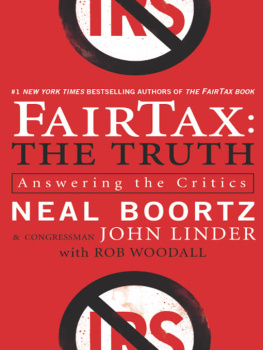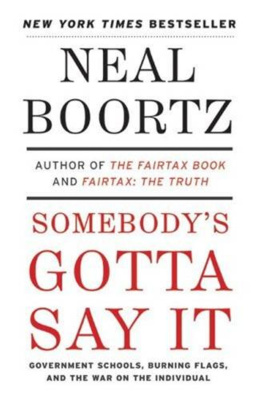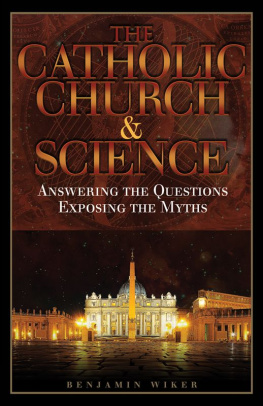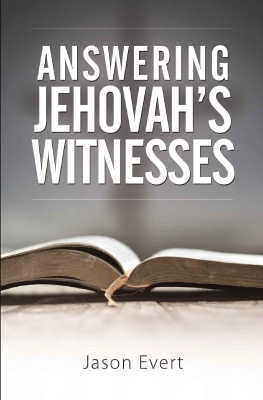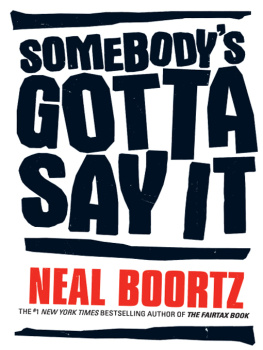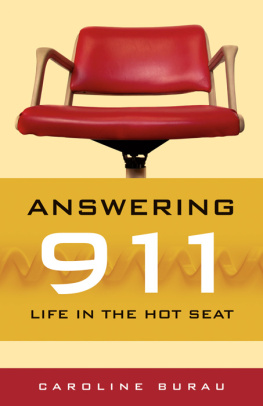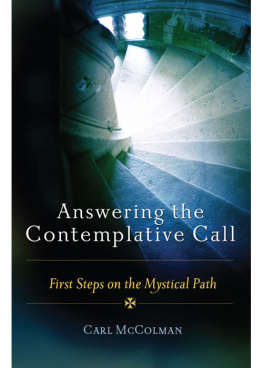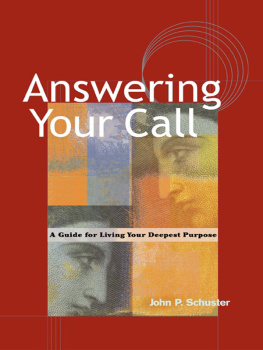Y ou know how these conversations get started. You and a few friends start talking about how to make the world a better place. Most likely, somethinggood or badhas happened recently to precipitate it. Maybe one of you has had a stroke of good fortune: a job, a successful new business venture, a wedding or birth in the family. Maybe one of you has witnessed a tragedy and found a new gratefulness for what you have. Maybe youve just received a big hug from your spouse and kids, and you just have that alls right in the world feeling you want to share. However it starts, this kind of conversation: How can we spread the feeling? How can we make things better for others, the way theyve been going for us?can last for hours.
In the case of the FairTax, the conversation has lasted twelve yearsand its still going.
Weve all talked about taxes at one time or another, and most of us have wished or wondered about improving the mess that is our federal income tax system. Many of us have even wondered about other kinds of taxesincluding consumption taxes and sales taxes. It was a group of three men in Texas in 1995 whose thoughts first led them to the idea of the FairTax. Their conversation started that same way: Whats wrong? How can we help fix it? What made it unusual is that it was a conversation among men of meanseach a fabulously successful businessman and philanthropist in his own right.
The three had recently participated in a successful campaign to bring about change in Texasan effort that saved Texans $1.5 billion in insurance premiums in its first three years alone. The conversation that day in Texas was about how their experience in Texas could help them to tackle problems nationally.
Lets think beyond Texas, they mused. What are the pressing problems that are hurting our nation as a whole? Too many regulations? Too little participation in the democratic process?
Waitwhat about this terrible tax code of ours?
Each of these men had spent countless hours pondering business decisions based not on what was good or bad for their employees, customers, and shareholders, but rather on what would have the best tax implications. Now, instead, they began imagining a system in which decisions could be made based on whats best for the individual or business, rather on what would fly under our convoluted tax code.
Each knew that the tax code was crippling our economy. Now they started talking about what they could do about it.
There was just one difference between our own idle conversations and this one: These gentlemen acted on their ideas. They resolved to start with a completely blank slate and see where their effort led them.
As they started researching the subject, examining volumes of tax literature, they found an endless trail of ideas for tweaking the current code to achieve specific economic or social goals: If you want to encourage ethanol production, do this. If you want to help marriages stay together, do that. If you want to help keep manufacturing jobs in this country, try the other. All these prescriptionsmany of which ran counter to one anotherwere predicated on changing the current federal income tax code.
As the FairTax founders looked further, however, they found another collection of articlesa smaller, but more intriguing, body of thoughtby scholars and theorists who believed that the United States would be best served by broad reform and bigger ideas. It was in these articles that they first lighted on the idea of optimum reform.
As they sifted through the information, a group of fifteen brilliant scholars and theorists rose to the top of the stack. The businessmen contacted each of these highly respected thinkers, asking if they would be willing to participate in this new optimum reform effort. All fifteen agreed, and after a series of meetings, eight were chosen to participate.
With their business backgrounds, the three men spearheading the fledgling effort knew the value of giving the customer what he wants and needs. So once they assembled their economic team, their next step was to find out what the customerthat is, you, the American taxpayerwanted.
Now lets digress for a moment. The fact is, we have a very strange relationship with success in this country. Everyone wants it, but a vocal minority insists on denigrating those who have achieved it. Some call this wealth envy.
Our experience with successful people is very different. Our experience is that those who have their economic house in order are the most willing to help others find that same success. Such was the motivation for these founders of the FairTax as they began telling their friends about their quest to develop a better tax code. It wasnt long before offers of help and funding began to come in. Of course, the founders and their friends were receiving nothing for their efforts: no salary, no expense reimbursements, no perks, no profits. On the contrary, they all made contributions to the effort. They all had their financial houses in order; they had lawyers and accountants to sort out their tax bills and to keep them as low as possible within the law. In fact, one of the men was both a lawyer and a CPA, who had made a living for years helping others access the benefits available to them in the tax code. Abolishing the very tax code he utilized for the benefit of his clientsas the FairTax would ultimately dooffered him no special personal benefit. These men gave of themselves and their resources simply because it was the right thing to do. (Please remember that later, when we come to the subject of charitable giving: the beneficiaries of these mens efforts are the working men and women of Americaand their children and grandchildren.)
Okay, end of digression: back to the customer and what he wants.
A man named Philip Carroll, the CEO of Shell Oil, offered to help. He put the group in touch with Shells in-house opinion researchers and Shells outside consultants. And so the effort began.
Of course it sounds a tad optimistic in retrospect, but the group decided that a $4.5 million budget and an eighteen-month window would allow them to (a) research what was needed, (b) take the solution to Congress, and (c) help get it passed into law. Wellthey tried. But of course these Washington outsiders never dreamed of the buzz saw they would run into when they brought the idea of comprehensive tax reform and simplification inside the Beltway. Perhaps it was better that they didnt: if theyd known the effort would take closer to eighteen years than eighteen months, they might have thought twice about the whole idea.
But begin they did.
First they did a little national polling to find out how Americans viewed the tax system and what they wanted to change. They then asked their economists to start designing an optimum tax system around the wishes of taxpayers. They set up focus groups in four major cities, delving into the wants and needs of Americans in great detail; the results of each focus group were sent back to the economists as they refined their tax proposal.

